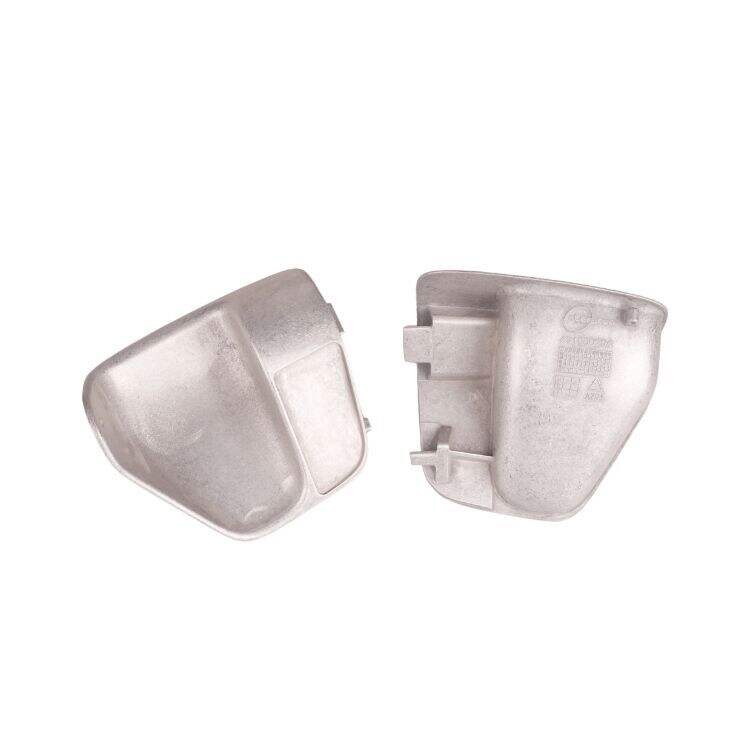Магний кыймылы келечеги бар жеңил өндүрүштө атайын артыкчылыктары менен таанымал болуп жатат. Салмакты кемитүү маанилүү болгон автомобилдер жана аэрокосмос сыяктуу түрдүү өнөр жайда кеңири колдонулат. Бул макалада биз анын популярдуулугу арттырып жаткан себептерин жана алардын негизги пайдасын карап чыгабыз.
Магний доломунун куймасы жеңил өндүрүштү иштетүү үчүн чоң пайдубер экенин жана анын жетишсиздигин белгилөө керек. Магний - эң жеңил куймаланган металлдардын бири болуп саналат, ал болот же алюминийге салыштырмалуу бөлүктөрдүн салмагын айтарлык дәрэжеде кемитет. Бул агрегаттардын салмагын тежөө аркылуу отундун эффективдүүлүгүн жана иштөө мүнөзүн жакшыртуу үчүн аэрокосмостук жана автомобиль секторлорундо асса маанилүү.
Магний доломунун куймасы жана алюминий: Балкытуунун жаңы стандарты
Алюминий доломунун куймасы прочность үчүн таанылган. Ал жеңил салмактуулукту жана жетиштүү төзүмдүүлүктү бириктирет, ар кандай колдонуу үчүн жарашкан. Шилтеме үчүн, көптөгөн өндүрүүчүлөр жеңил бөлүктөр үчүн магний доломуна кайрылышат.
Магний долбо менен кокусунун ортосундагы байланыштын чоң күчү бар, ошондуктан эки окшоштуу жана жеңил болгон буюмдар үчүн идеалдуу тандаш болуп саналат. Эки жагынан пайдалануу имаратчыларга күчтүү жана узак мерзимдүү, шарттарга ыңгайлуу жана ташууга жеңил буюмдар жасоого мүмкүнчүлүк берет.
Магнийдик спайка тууралуу артыкчылыктору
Магний долбо менен кокустун өзгөчө касиеттери бар, ар кандай өрөөнгө жарамдуу. Эркин коррозияга каршы туруу кабилети, жеңил жана окшоштуу түзүлүшү менен бириккенде, буюмдардын атайын шарттарда, айрыкча сырткы жабдууларда жана транспорттордо иштөөсүн камсыз кылат.
Өнөр жайындагы магний долборлордун көбөйүп жаткан пайдаланышы алардын пайдасын таануунун өсүшүн көрсөтөт. Өндүрүш технологиялары өркүндөгөндө компаниялар магнийди өнімдөргө киргизүүнүн жаңы жолдорун иштеп чыгып, жеңил, эффективдүү жана жогорку бейимдүү бөлүктөргө алып келет.
Бирдей маанилүү экологиялык пайда. Магнийди көбөйткөндө продукциянын салмагын жеңилдетип, энергияны жутумдуулугун жакшыртат. Бул өндүрүш жана ташуу процесстеринде энергия талаптарын кемитет, производдердин экологиялык таасирин азайтып, жогорку экологиялык чечимдерге ылайыкташына жардам берет.
Корутунду жана перспектива
Жалпысынан, жеңил өндүрүштө магнийди кабыл алуу өсүүдө экени айкын. Берекети, коррозияга туруштук көрсөтүүчү жана жеңил болгондуктан магний кыймыл-аракеттүү өнөр жайда башкы материалга айланып жатат.
Магнийди колдонууга көчүү жеңил жана эффективдүү продукция алууга мүмкүнчүлүк берет, бул экинчи тараптан продукциянын эффективдүүлүгүн жакшыртуу жана экологиялык чечимдерди ишке ашырууга жардам берет. Moldie сыяктуу инновациялык компаниялардын аркасында магний негизинде өндүрүштүн перспективасы дагы жарык болуп келет. Бул эгиз тенденцияны кызыгуу менен көзөмөлдөп туралы
 EN
EN
 AR
AR
 BG
BG
 HR
HR
 CS
CS
 DA
DA
 NL
NL
 FI
FI
 FR
FR
 DE
DE
 EL
EL
 HI
HI
 IT
IT
 JA
JA
 KO
KO
 NO
NO
 PL
PL
 PT
PT
 RO
RO
 RU
RU
 ES
ES
 SV
SV
 LV
LV
 SR
SR
 SK
SK
 SL
SL
 UK
UK
 HU
HU
 TR
TR
 FA
FA
 MS
MS
 GA
GA
 CY
CY
 IS
IS
 HY
HY
 AZ
AZ
 KA
KA
 BS
BS
 LA
LA
 KY
KY




